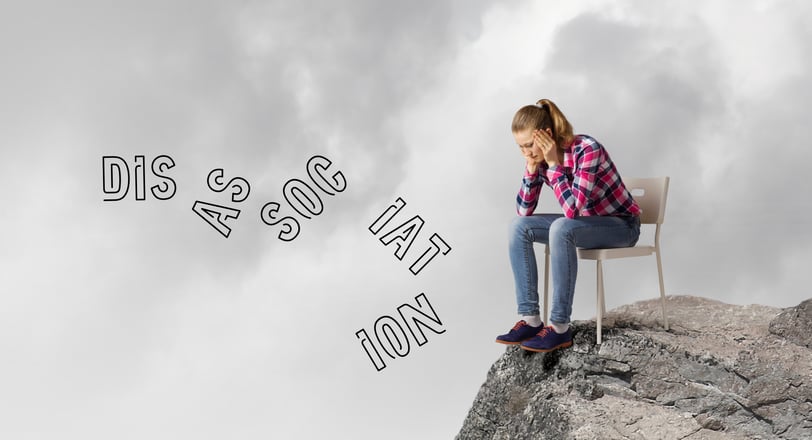From Lost to Found: My Journey Through Dissociation and Healing
In this post, I share some of my personal experience with dissociation, how it shaped my life, and how I found a way to heal from the trauma. Dissociation, a response to overwhelming abuse, once made me feel disconnected from myself, my thoughts, and my reality. Today, I’ve learned to overcome its effects through therapy, journaling, and facing my truth. Here’s how I reclaimed my life, one memory at a time.
TRAUMA & ABUSE
Tiffany
10/21/20244 min read


Slow Learner
Life today feels like something I’ve dreamed of for years. If you had told me back then that I’d be where I am now, I wouldn’t have believed you. My path was full of challenges and setbacks, many rooted in a childhood I couldn’t control. As a child, I was abused by adults I was supposed to trust. I didn’t fully understand what was happening at the time, but I knew deep down it felt wrong.
When I finally found the courage to speak up, the focus wasn’t on protecting or helping me. Instead, everyone seemed more concerned with how my words would affect them. They told me I’d made serious allegations and that these things have consequences. I had better be telling the truth. And just like that, it all went away. The case, the questions, the attention—they disappeared.
They buried me in the system. I was moved to a new home, a new school, far away from the scrutiny. I was told I had "special needs" and placed in classrooms with kids they called “slow learners.” But looking back now, I realize there was nothing wrong with me—not in the way they made me believe.
Lost
The real issue wasn’t my ability to learn, but the trauma I had endured. When they moved me, they disconnected me from any sense of reality that could have helped me trace my own story. It was already hard enough, freezing up in my mind during the abuse. But the worst part was becoming so mentally lost that I couldn’t even tell if the abuse had really happened or if I’d made it up.
Dissociation
Dissociation, they call it. It’s what happens when your mind disconnects to protect itself from unbearable pain. The memories, the feelings—they all get buried deep, leaving you with gaps you can’t fill. For years, my thoughts felt scattered. I’d be fine one moment, and the next, everything would shut down. I couldn’t make sense of my own story. There were huge blanks in my memory, whole periods of time where I couldn’t remember how I ended up in the situations I found myself in.
It wasn’t just in my childhood. As an adult, whenever I faced pressure or tough decisions, my mind would go blank, leaving me unable to connect the dots. The trauma kept repeating itself—only this time, I was trapped in my thoughts. I couldn’t explain my choices, my preferences, or even what I truly wanted. Inside, I often thought, What’s the point? No one’s going to listen anyway.
In my adult relationships, I struggled to tell my story because I couldn’t remember it. I was told that I wasn’t making sense, that I was confused or illogical. Some even thought I was making things up. It felt like no one could understand the weight I was carrying.
This is what dissociation does. It’s your brain’s way of protecting you from the things too painful to process. But over time, it leaves you detached from your own life, caught between two realities—the one others want you to believe and the deeper knowing that comes up whenever you feel past emotions or glimpse a fragment of your memories. You begin to think you’re the one who’s wrong, but in truth, it’s the world around you that has failed you.
Found
The turning point came when I started journaling. At first, it was incredibly hard. Writing brought back memories in waves so strong, I thought I’d drown in them. But instead of shutting down, I learned to become an observer. I watched my younger self through the window of my mind, listening to her and nurturing her. Little by little, I began to connect the pieces. I started to reclaim my story—not the one they told me, but the one I was truly living.
Therapy helped, but the real healing came when I gave myself permission to speak my truth. I stopped letting the blank spaces control me and began to fill them in. The more I wrote, the more I recognized the strength in the girl who had survived. She wasn’t slow. She wasn’t broken. She was navigating a world that didn’t make space for her pain.
And look at me now. I’m not here to boast, but I am here to tell the truth. The girl who couldn’t string two sentences together can now write pages. The "slow learner" runs her own business. I’m not the person they said I was. I’m who I choose to be, because I fought for this life. I may have started out at a disadvantage, but I never gave up on myself.
Healing
Dissociation doesn’t define me anymore. It was part of my journey, but it’s not my destination. I’ve learned that healing isn’t about erasing the past—it’s about finding a way to carry it without letting it weigh you down. And every day, I get a little better at doing just that.
If you’ve experienced something similar, know that you’re not alone. Your mind may have gone blank to protect you, but you have the power to fill in those spaces with your truth, just like I did. Healing is possible. Keep writing, keep speaking, and don’t stop until you find your way home.
letstalk@tiffanyandtyrone.com

